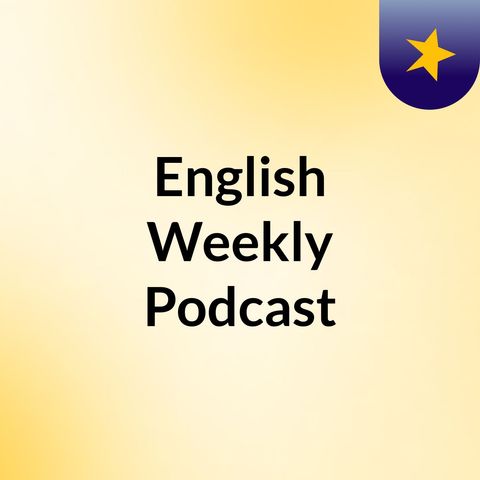Simple Present: Week 3

Descarga y escucha en cualquier lugar
Descarga tus episodios favoritos y disfrútalos, ¡dondequiera que estés! Regístrate o inicia sesión ahora para acceder a la escucha sin conexión.
Simple Present: Week 3
Esta transcripción es generada automáticamente. Ten en cuenta que no se garantiza una precisión absoluta.
Descripción
Welcome to our “Week 3 Podcast” Today, we'll discuss some essential English grammar rules that will enhance your language skills. First, we'll talk about regular and irregular plurals. Regular plurals...
mostra másFirst, we'll talk about regular and irregular plurals. Regular plurals are formed by adding an "s" or "es" to the singular noun, while irregular plurals don't follow a specific pattern. For example, the plural of "book" is "books," while the plural of "child" is "children."
Next, let's move on to numbers. In English, we use numbers to count from one to a hundred. It's essential to know these numbers to function in society and communicate with others.
After that, we'll talk about adjectives. Adjectives describe or modify a noun or pronoun. They're often placed before the noun they modify. For example, "The red car is fast."
Then, we'll cover prepositions of place and spatial locations. Prepositions of place like "in," "on" and "at," describe where objects, people or places are located.
Also, we'll discuss countable and uncountable nouns. Countable nouns can be counted, such as "books" or "cars." Uncountable nouns can't be counted, such as "water" or "rice."
Lastly, we'll touch upon the use of "some" and "any." We use "some" for positive statements and "any" for negative statements or questions. For example, "I have some milk" vs. "I don't have any milk."
That's it for this podcast. Thank you for listening, and I hope this information is useful for you!
Información
| Autor | Leonor Adelina Gamboa |
| Organización | Leonor Adelina Gamboa |
| Página web | - |
| Etiquetas |
Copyright 2024 - Spreaker Inc. an iHeartMedia Company

Comentarios